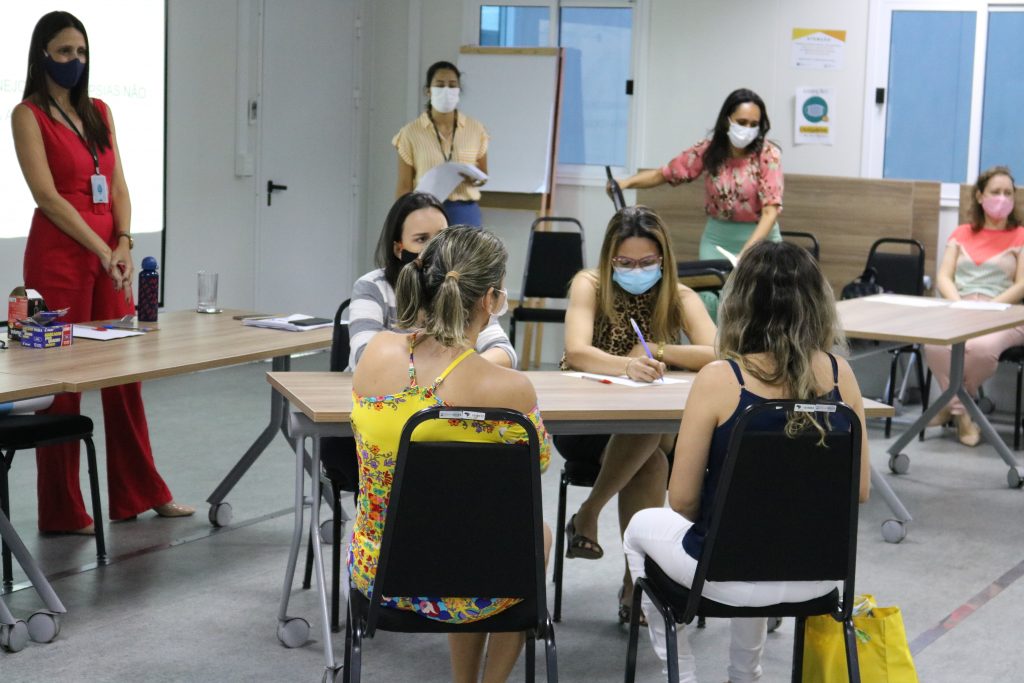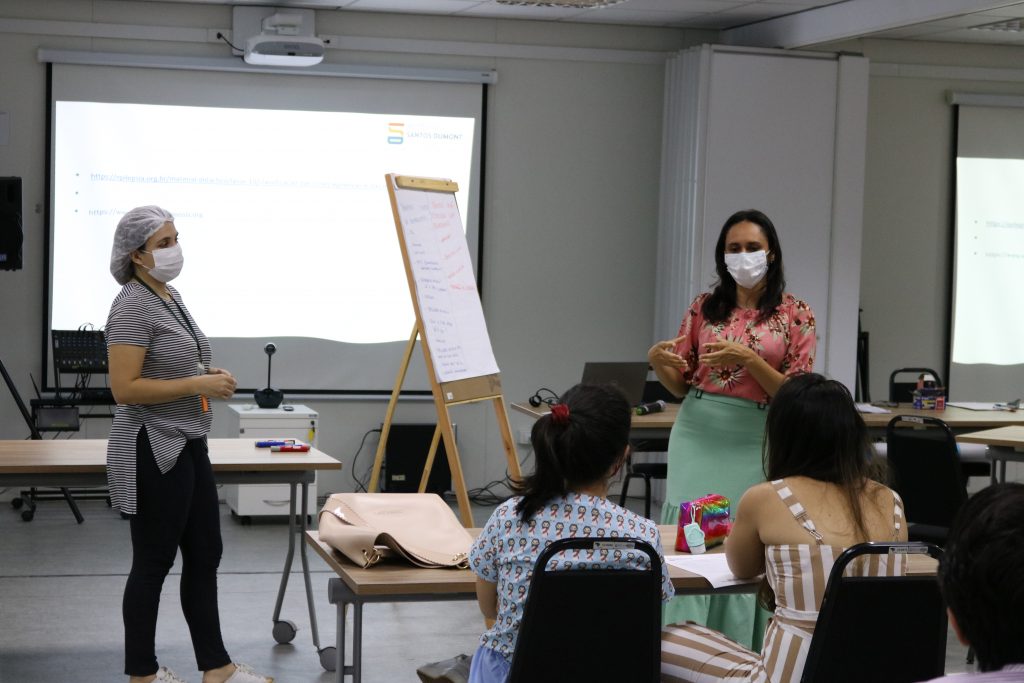
The Anita Garibaldi Health Education and Research Center, of the Santos Dumont Institute (ISD), started this Wednesday (18) training activities in epilepsy for medical and nursing teams working in the basic health network of Macaíba/RN – and intends to extend the schedule, on dates not yet defined, to qualify professionals from other regions of the state as well.
The Epilepsy clinic of the Specialized Center for Auditory, Physical and Intellectual Rehabilitation (CER-III) at Anita is a reference in Rio Grande do Norte in assistance to refractory epilepsies – epilepsies with difficult-to-control seizures – and has identified deficiencies in the basic health network with respect to the other cases.
“Today there is a lack of care in the network to cope with this demand”, says physiotherapist and physical rehabilitation coordinator at CER Anita Garibaldi, from ISD, Camila Simão. “Today, babies, children and adults with refractory epilepsy come to our service and those who are not refractory are referred to the network. The objective is to train this network to receive these patients”.
The follow-up of cases of controlled epilepsy, non-refractory epilepsy – the target of the training held yesterday at Anita, according to Camila – can be done in the basic health network through the prescription of some medications and, for example, monitoring symptoms. “This is considered a simpler form of care that basic care can handle, that the pediatrician and the doctor at the health center can handle. We saw this need and today we have a permanent education project to train the network throughout the state, starting with Macaíba”, he adds.
Training
About 20 professionals who work in rural and urban areas of Macaíba participated in the first day of training and another group, scheduled for December, should include another 15 doctors, male and female nurses from the municipality.
Nurse Nadja Marcela, who works at the Basic Health Unit in Bela Vista, rural Macaíba, says that training on epilepsy helps to meet a frequent demand in the unit's reality.
“One thing we miss is mainly the diagnosis, knowing how to recognize signs when patients arrive and present complaints. At the UBS (Basic Health Unit) where I work, these signs of epilepsy are frequent, especially in children. Knowing how to identify this better expands the capacity to care for these patients”, he says.

Neuropediatrician Celina Reis, one of Anita's professionals at the head of the training, explains that one of the most important learnings covered in the training is related to anamnesis, that is, the interviews or screenings carried out with patients.
“It is extremely important to ask about the age, onset of crises, how they happen, what are the symptoms, how long they last, what is the social performance of this patient, in order to direct a treatment. These items need to be evaluated, especially the observation of the crises, to direct to the correct diagnosis and then to the follow-up”, explains Celina. The characteristics, symptoms and types of epileptic seizures were also included in the training.
What is epilepsy
Epilepsy is considered one of the most common neurological diseases that exist and, according to the World Health Organization (WHO), affects about 50 million people worldwide.
The disease can cause seizures or non-convulsive seizures, including “absence” seizures – in which the person seems to “turn off” for a few moments, then being able to resume what they were doing afterwards – and, for example, sensations such as perception distortions, uncontrolled movements of a body part or sudden fear, as description of the Brazilian League of Epilepsy.
“Non-convulsive seizures”, according to the Ministry of Health, “they are often difficult to diagnose, except when they progress to a seizure”.
Nurse Mariana Damásio, who works at UBS As Marias, in the rural area of Macaíba, said she still has no experience in caring for patients with epilepsy, but that training like this “is rich” for professionals.
"I've already participated in training on autism (at Anita), something I wasn't trained in, and today I not only have a different look at the disorder, but more knowledge".
The training rate of health teams is one of the Santos Dumont Institute indicators monitored and evaluated by the Ministry of Education, a federal government agency to which the Institute has been linked since 2014.
Actions in the area are carried out in a discussed, planned manner and based on the problematization of the work that professionals carry out in practice.
Family planning and the performance of primary health care in caring for people living with HIV/AIDS were among the topics on the agenda scheduled for 2020, which ended up, however, being postponed due to the Covid-19 pandemic.
The training on epilepsy, started yesterday, was the first held in the year.
“A second training on epilepsy should take place in December and from then on others should follow. We understand that these are the first of many. We are thinking of ways to create a schedule to constitute a permanent education project”, said Camila Simão.
Epilepsy, according to the Ministry of Health, can be prevented and controlled in up to 70% of patients.
Text: Ascom – ISD
Photos: Kamila Tuenia – Journalism Intern / Ascom – ISD
Communication Office
comunicacao@isd.org.br
(84) 99416-1880
Santos Dumont Institute (ISD)
It is a Social Organization linked to the Ministry of Education (MEC) and includes the Edmond and Lily Safra International Institute of Neurosciences and the Anita Garibaldi Health Education and Research Center, both in Macaíba. ISD's mission is to promote education for life, forming citizens through integrated teaching, research and extension actions, in addition to contributing to a fairer and more humane transformation of Brazilian social reality.













